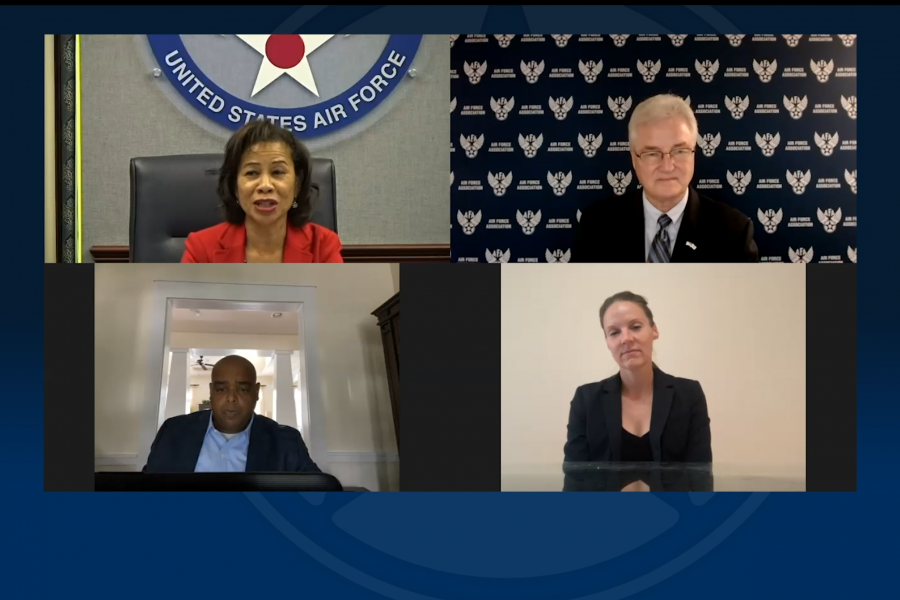Military spouses must support each other and reach out when they need help, the spouses of top Air Force and Space Force leaders said during a panel discussion as part of the Air Force Association’s virtual Air, Space & Cyber Conference.
Military life can be stressful, with all the moving, trying to find jobs and friends in new locations, navigating TRICARE and other services, and now all the challenges that come with a global pandemic. Sharene Brown, wife of Air Force Chief of Staff Gen. Charles Q. Brown Jr., said what has helped her most over the years has been “connecting [with] and supporting others.”
“Knowing that others were experiencing similar emotions and stressors, and could share how they managed their own situations [was] powerful,” she said. “Connecting with others and finding resources to aid in my care for myself, as well as for my family, was paramount.”
Rachel Rush, wife of Space Force Senior Enlisted Advisor Chief Master Sgt. Roger A. Towberman, said she is relatively new to military life and has had to prepare herself mentally for each of the moves and changes. But, she said, spouses should “give themselves credit for how much we do.”
“When [the movers drive] away from your house and that house is clean, give yourself credit. When you get a new house and you make it a home, when you get a new job, when you find new friends, all those things deserve credit,” she said.
Rahn Bass, husband of Chief Master Sergeant of the Air Force JoAnne S. Bass, said leveraging friends and other spouses, and leaning on senior leadership has helped him. Bass retired from the Army and said being put in the role of a Key Spouse has been a bit uncomfortable, because it is outside of his expertise.
“But, if you’re going to grow, you have to … get uncomfortable,” he said.
Mollie Raymond, wife of Space Force Chief of Space Operations Gen. John W. “Jay” Raymond, joined the virtual panel discussion via a pre-recorded video. In it, she acknowledged that COVID-19 has impacted everyone.
“Like so many Americans, our Air Force and Space Force families are experiencing life stressors, such as the loss of normal routines, balancing teleworking with childcare, navigating remote or virtual learning with our children, not to mention the fear that we have of becoming ill,” Raymond said, adding that she’s particularly worried about the “lack of social interaction,” because despite Zoom and social media, “we’re missing out on human interaction, and people feel isolated and lonely.”
To combat that loneliness, Brown suggested reaching out to other military families who might need support.
“If you’ve been in the area for a little while and you know families are moving in, reach out to them, try to say hello in whatever ways you can,” she said.
